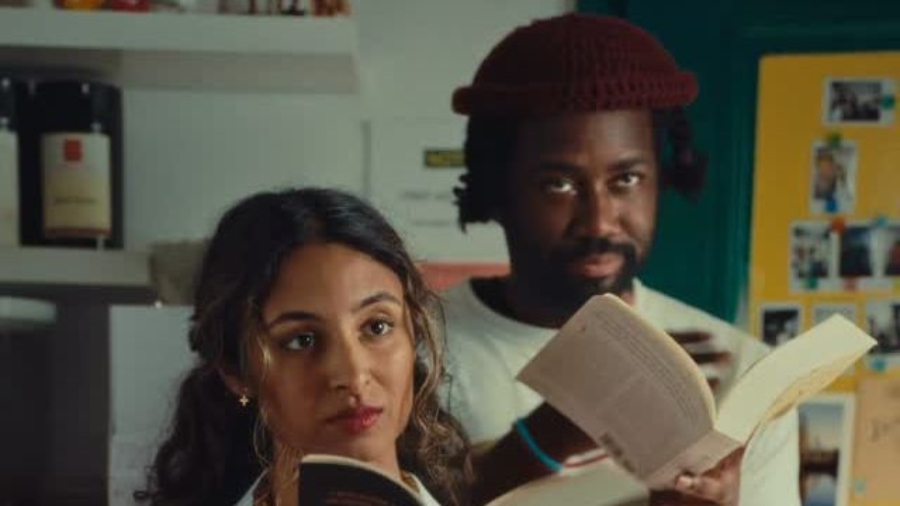Writer-actor Pooja Tripathi is used to people being afraid of her. After all, nearly 200,000 Instagram users’ first impression of her is as Thyme: the perpetually unimpressed, aggressively anti-establishment, eye-rolling barista behind the counter at the fictional Brooklyn Coffee Shop. Tripathi’s character plays into the internet stereotype of the hipster barista, a “pretentious jerk” too cool for most conversations—and most coffee orders. At BCS, you hardly ever get what you want. Thyme does not look up from her book—Can We All Be Feminists? (2018), The Protestant Ethic and the Spirit of Capitalism (1904), Resisting AI (2022) or a favourite, ‘Yass Kapital’—when you enter, and if she does, it is only to scowl at you. Her co-worker, Kale—played by Darryl Gene Daughtry Jr—constantly makes jokes at your expense. The prices are outrageous, timings entirely random and the space dimly lit to prevent photography (as an act of rebellion against the surveillance state). Forget about your basic black coffees and cappuccinos. Brooklyn Coffee Shop only serves intricate drinks with substitute milks: raw-avocado-pit, barley, flax, melon-seed, acorn and, of course, breast milk. (If their in-house goat Felicia isn’t too emotionally exhausted, goat milk is also an option.) Being a customer here is harrowing, but to be a barista, there is only one requirement: to have mastered “the glare of disgust”.
“When DJ and I are out and about, sometimes people will say they didn’t recognise us at first because we’re smiling and they’re so used to seeing us scary and frowning,” Tripathi reveals. When I admit to her that I was also nervous at the prospect of this interview, she laughs. “I think that right now, on the internet, the line between reality and fiction is blurry and many creators—us included—play with that line. Because of that, people don’t see you as an actor if you’re a content creator online,” she observes, “But I consider this a show and Thyme is a role I wrote for myself.”
When you first discover its Instagram page, Brooklyn Coffee Shop seems to be a real space. “Artisanal coffee shop in Brooklyn, NY. All milks made in-house,” reads the bio. Creating content for social media has many advantages. To Tripathi, the short-form format—each episode is approximately a minute long—hardly feels restrictive. In a competitive ecosystem where brands, influencers and celebrities alike fight for attention, she is confident in the show’s ability to keep people hooked. “If you watch a sitcom like 30 Rock, it’s all set within the studio yet, to my amazement, they keep coming up with more and more ideas without it feeling monotonous,” the 32-year-old marvels, “I actually like the challenge of keeping it short. Sometimes these restrictions fuel creativity because they force us to think about what else we can do within a limit.”
She concludes that TikTok and Instagram have been nothing but beneficial to her creative pursuits: “If it wasn’t for social media, this wouldn’t be a show at all. The thing that’s really hard about traditional media is that you need so many people to say yes to you and even to get to the room where they can decide yes or no is a long road.” Creating a social show was Tripathi’s way of democratising both the creation and consumption of art and taking control back. “It was a way of saying I would love to have a TV show but here is something we can do in the meantime. But then along the road, I realised that this, in and of itself, was an interesting project.”
Source link











